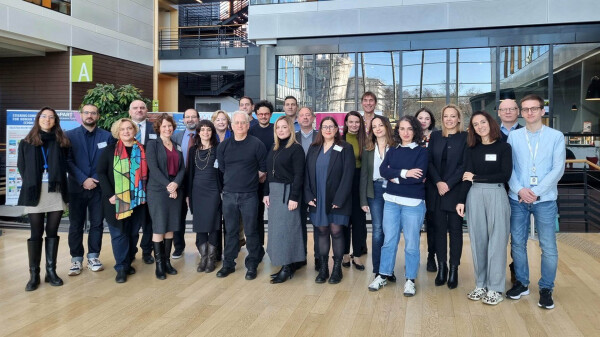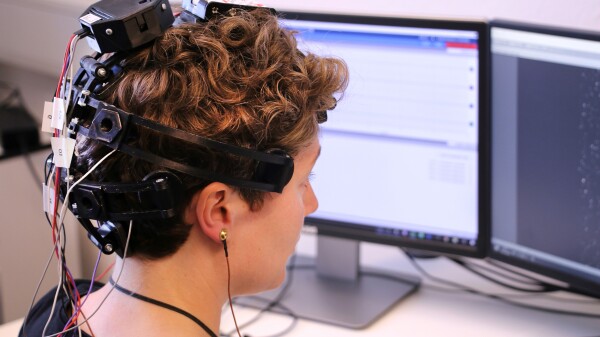Welcome to the new Faculty of Computer Science
Departments
Faculty news

AutoMLM: Automation of Methods for (Re-)Constructing Models and Languages
The world is increasingly permeated by software and data. The use and maintenance of these digital artifacts requires their linguistic representation.

New project in the research group of Prof. Dr. Hannes Rothe Collaborative Value Creation with Health Data
The European Health Data Space (EHDS) aims to facilitate the secure exchange and linkage of health data within the EU. The EHDS4ALL project, starting in March 2024, will empower small and medium-sized enterprises to establish business ideas more easily within this emerging data ecosystem.

Interview with Prof. Dr. Irene-Angelica Chounta AI in education
Will AI replace classrooms in the future? No, says Prof. Dr. Irene-Angelica Chounta in our interview. However, digital, intelligent learning methods will become an essential part of education.

Inaugural meeting of the faculty council Prof. Weis elected dean
At its constituent meeting, the Faculty Council elected the founding dean, Prof Dr Torben Weis, as dean.
Other elected members of the Dean's Board are the Vice-Deans Prof Dr Maic Masuch, Prof Dr Ralf Plattfaut, Prof Dr Stefan Schneegaß and the Dean of Studies Prof Dr Barbara König.

Studies
The Faculty of Computer Science will offer an attractive and diverse range of courses that is unique in the region. It will include, among others, the bachelor's/master's degree programs "Computer Science", "Applied Cognitive and Media Science", "Software Engineering" and "Business Informatics" as well as the teaching degree in Computer Science. All enrolled students can continue their studies as usual.
Information for applicants
Research
In addition to the essential foundations of informatics, we explore emerging systems in their interactions with their environment. This involves interaction with people and other technical systems, as well as embedding these systems in economic and societal contexts. In order to shape the future of digital transformation, we bundle our competencies in three main research areas.

Human-Centered Digital Technology
Focus is on exploring the reciprocal adaptivity of human-technology systems and the empowerment of human users in interaction with increasingly intelligent technologies.

Software Technology
We shape the future of engineering and operation of novel software systems and seek intelligent solutions at the interfaces of complexity, security, and usability. These activities are bundled at paluno - The Ruhr Insitute for Software Technology.

Digitalisation in Service and Trade
We address the challenges of how disruptive technological approaches generate successful innovations in service organizations. Beyond that, we examine the effects that new technologies have on organizations, both internally and externally.




